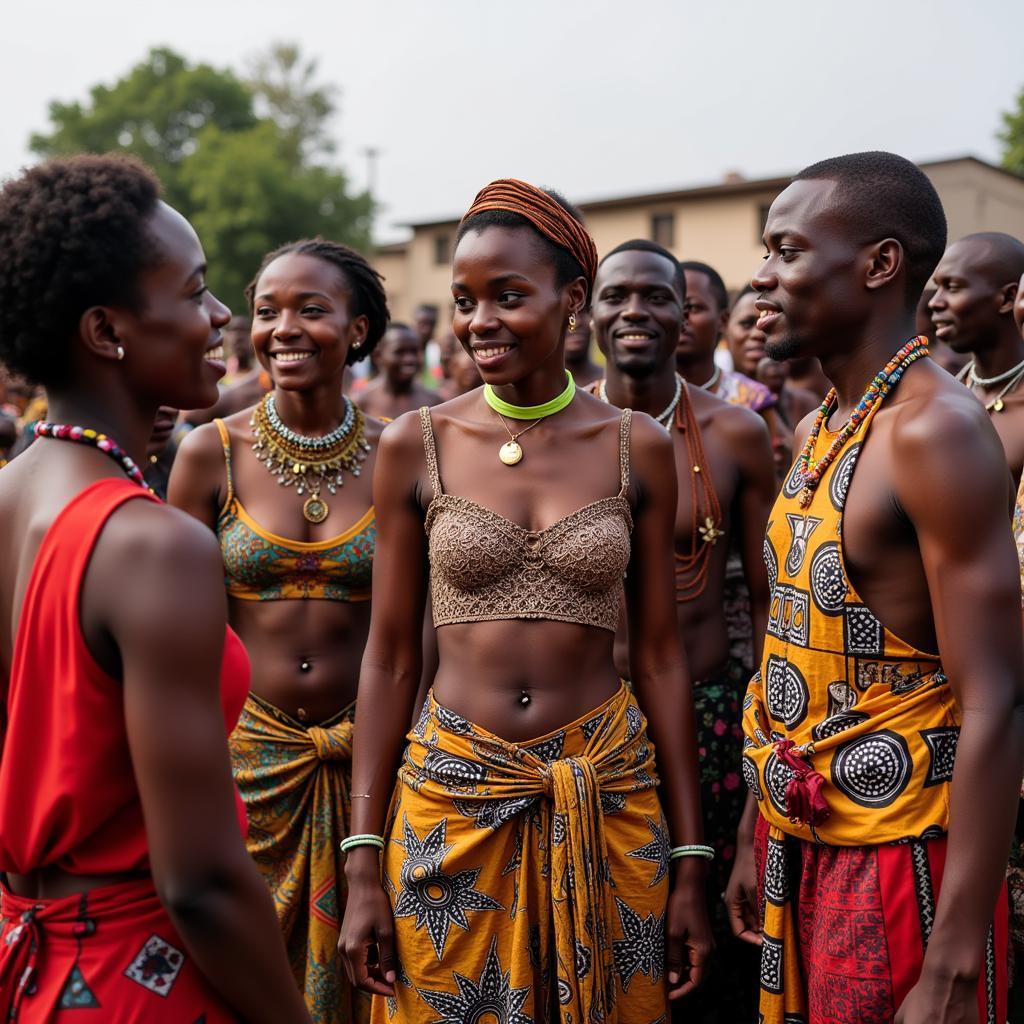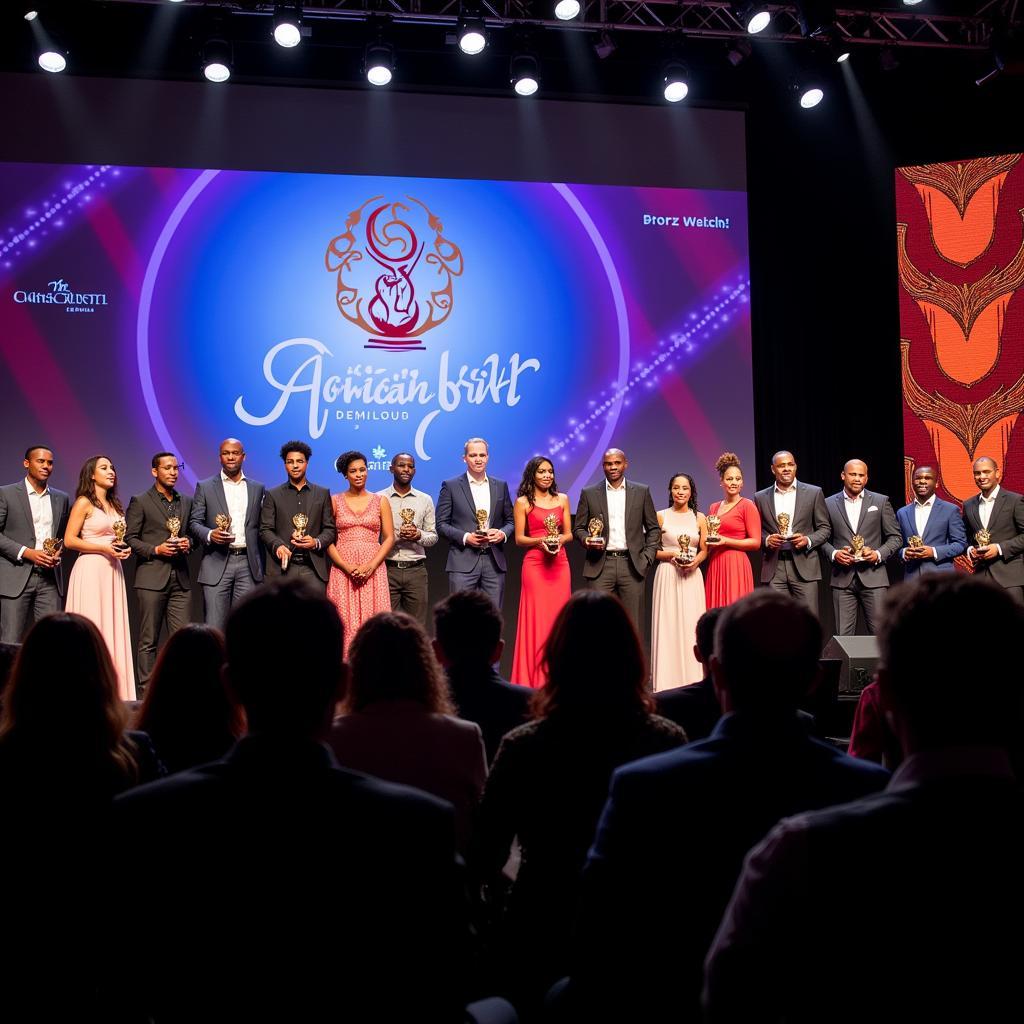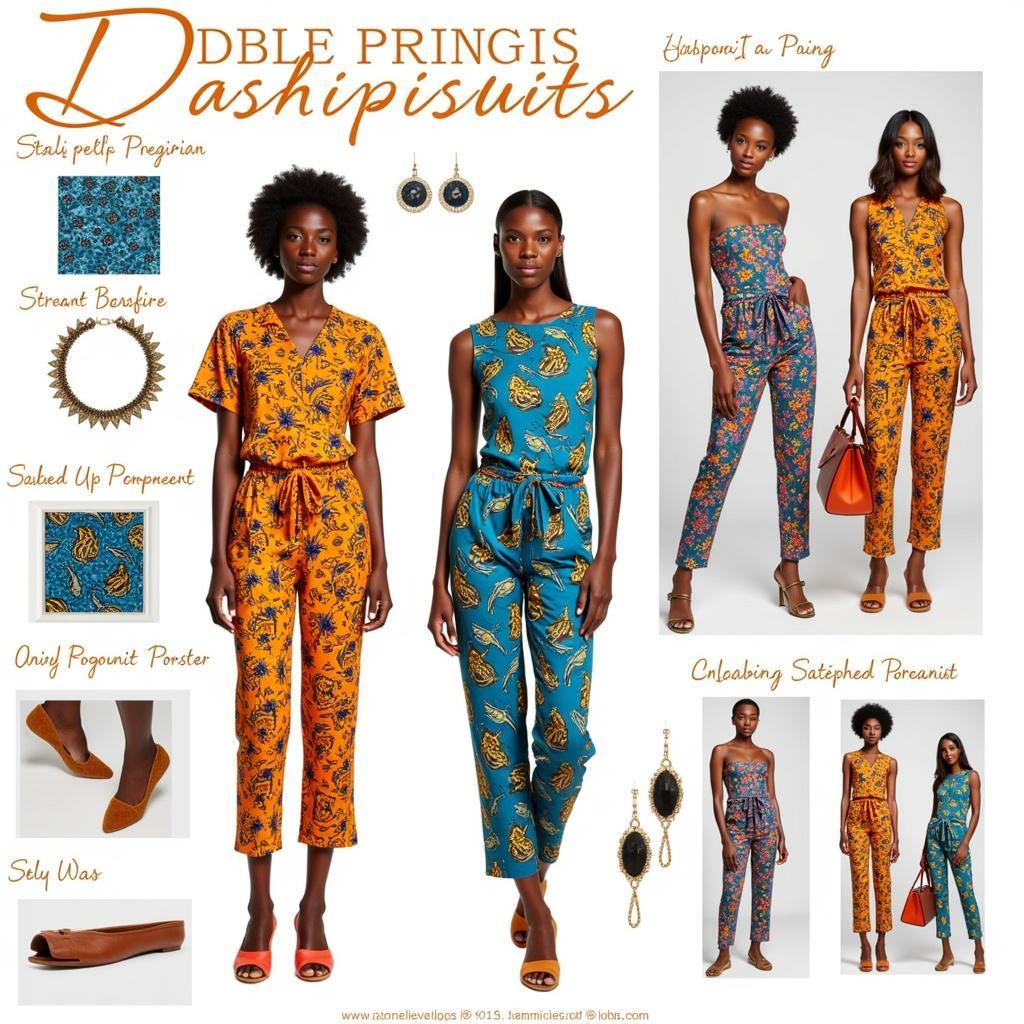Understanding African Double Sex: Culture, Identity, and Misconceptions
African Double Sex is a complex topic often shrouded in misinformation and sensationalism. This article aims to explore the cultural nuances and individual experiences surrounding variations in sex characteristics in Africa, moving beyond the stereotypes and focusing on respectful understanding.
 African Intersex Individuals in Cultural Context
African Intersex Individuals in Cultural Context
Intersex Variations in African Societies: A Historical Perspective
Historically, many African societies have demonstrated a greater acceptance of variations in sex characteristics than Western cultures. Terms like “double sex” can be misleading, as they simplify a diverse spectrum of human biology. Intersex people are individuals born with sex characteristics (chromosomes, gonads, hormones, or genitals) that do not fit typical binary notions of male or female. It’s important to understand that intersex is a naturally occurring biological variation, not a disease or a choice. In some traditional African communities, intersex individuals occupied specific social roles and were often seen as holding spiritual significance. This understanding differed greatly from the pathologizing lens through which intersex variations were viewed in Western medicine.
What are some of the historical perspectives on intersex variations in Africa? Many ancient African cultures incorporated intersex individuals into their societal structures, often assigning them specific roles and responsibilities. These roles could range from spiritual leadership to specialized crafts. This historical context highlights the importance of understanding the diversity of human experience and moving beyond rigid binary classifications.
african american woman suffrage
Challenging Western Narratives: African Perspectives on Gender and Sex
The Western emphasis on a strict male/female binary often clashes with traditional African understandings of gender and sex. In some African cultures, gender is more fluid and can be determined by social roles and behaviors rather than solely biological characteristics. This fluidity allows for a greater acceptance of individuals who do not fit neatly into the binary categories. The imposition of Western medical models and classifications can often lead to harmful interventions and stigmatization of intersex individuals in Africa.
How do African perspectives challenge Western narratives? Traditional African understandings of gender and sex often embrace fluidity and diversity, recognizing variations in sex characteristics as a natural part of human existence. This contrasts sharply with the Western emphasis on a strict male/female binary.
The Impact of Colonialism and Modernization on African Double Sex
Colonialism and the subsequent spread of Western medicine significantly impacted traditional African perspectives on intersex variations. The introduction of Western medical practices often led to the pathologization of intersex traits and the performance of unnecessary surgeries on intersex infants and children. These interventions, often performed without informed consent, aimed to force individuals into the Western binary system. This has led to a complex interplay between traditional beliefs and modern medical practices in contemporary Africa.
Advocacy and Support for Intersex Individuals in Africa
Despite the challenges, there is growing advocacy for the rights and well-being of intersex individuals in Africa. Organizations are working to raise awareness about intersex issues, combat stigma, and promote access to affirming healthcare. They are also advocating for policy changes that protect intersex individuals from discrimination and harmful medical interventions.
What are some of the key challenges faced by intersex individuals in Africa? Stigma, discrimination, and lack of access to affirming healthcare are among the significant challenges faced by intersex individuals in Africa. Advocacy groups are working to address these issues and promote greater understanding and acceptance.
Protecting Intersex Rights: A Call for Understanding and Acceptance
Dr. Abena Osei, a leading researcher on intersex issues in Ghana, states, “It’s crucial to remember that intersex people are not broken and do not need to be fixed. They deserve to be celebrated for their diversity and have their rights protected.”
The future of understanding “African double sex” lies in embracing the diversity of human experience and respecting the autonomy of intersex individuals. Education, advocacy, and open dialogue are crucial to fostering a more inclusive and accepting society for all.
african american lesbian gay xxx
Conclusion
The topic of African double sex necessitates a shift from sensationalism to respectful understanding. By acknowledging the diversity of human sex characteristics and challenging Western-centric narratives, we can foster greater acceptance and support for intersex individuals in Africa and globally. This requires challenging misconceptions, promoting accurate information, and celebrating the richness of human experience.
FAQ
- What does “African double sex” mean? The term is often misused and can be misleading. It refers to variations in sex characteristics in individuals of African descent.
- Is intersex a medical condition? No, intersex is a naturally occurring variation in human biology, not a disease.
- Are there support organizations for intersex people in Africa? Yes, a growing number of organizations are working to advocate for intersex rights and provide support.
- How can I be more supportive of intersex individuals? Educate yourself about intersex issues, challenge harmful stereotypes, and advocate for inclusive policies.
- What are some of the cultural beliefs surrounding intersex in Africa? Beliefs vary widely across different African cultures, with some traditionally holding more inclusive views than Western societies.
- What are the long-term effects of unnecessary medical interventions on intersex individuals? These interventions can have significant physical and psychological consequences, including trauma, infertility, and loss of bodily autonomy.
- How can we promote greater understanding and acceptance of intersex individuals? Through education, advocacy, and open dialogue, we can work towards a more inclusive and accepting society for all.
Need more support? Contact us 24/7: Phone: +255768904061, Email: kaka.mag@gmail.com, or visit us at Mbarali DC Mawindi, Kangaga, Tanzania.

